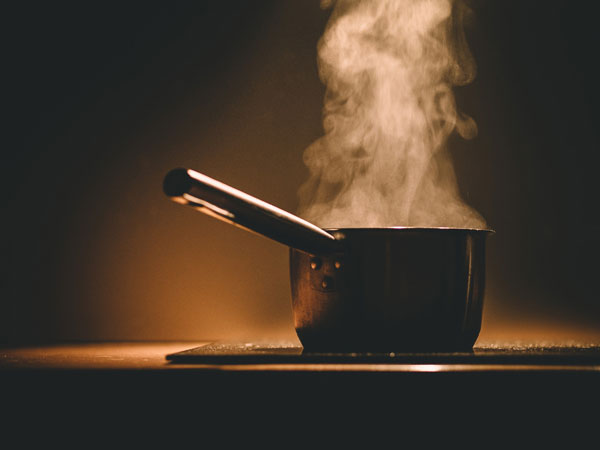How To Make Fewer Cooking Mistakes…
The culinary world is full of excitement. As a cook, you are eager to try new recipes and to perfect standard dishes. The culinary world is also full of cooking mistakes. Of course, we know you can learn from your mistakes as well! Dorsey Culinary Academy encourages you to experiment, explore, and learn how to make fewer cooking mistakes.
Most Common Cooking Mistakes 
In the kitchen, mistakes happen a lot. You may keep a pot on the heat just a bit too
long or you may forget how many teaspoons of red pepper you’ve already added to the sauce. Cooking problems such as these can sometimes be fixed. Other times, it’s best to scrap it all and start over!
Some common mistakes in cooking include:
- Not having all of your ingredients ready
- Using the wrong measurement
- Not being prepared for what comes next in the recipe
One of the top cooking mistakes involves not checking the ingredients to be sure they are fresh, particularly when using fresh produce or meat in a recipe.
How To Avoid Cooking Problems
First, take a deep breath and take comfort in knowing that kitchen mistakes happen to the best chefs! Then, take another deep breath and be sure you are well prepared before you start.
A very helpful cooking tip is to read through the entire recipe before you begin. Know exactly what is needed, in what order, so there are no surprises halfway through the cooking process. Once you have a good understanding of the entire recipe, line up the ingredients and the utensils needed.
A common mistake in cooking is not being prepared and having to take the time to search for an ingredient or a pan. When this happens, your timing will be off and that may affect the quality of your dish. At Dorsey Culinary Academy, we take pride in striving to make sure you’re prepared when you enter a kitchen in your first career as a Culinary Arts professional.
Kitchen Design Mistakes
Some problems are created as a result of common kitchen design mistakes. Your appliances, pots, and pans may be stored in an inconvenient location. Knives and other utensils may be out of reach, when you need them the most. When you have input into the design of the key elements in your kitchen, you have a greater chance of avoiding some of t he most common cooking mistakes.
he most common cooking mistakes.
So, how do you go about correcting cooking mistakes once they happen? Some mistakes just cannot be fixed. Others may take some imagination. For example, if you overdid it with that pepper, you can actually counter the overly spicy taste with something sweet, such as sugar. Did you burn the bottom of your biscuits or rolls? Slice the burnt layer off, dip in butter and fry slightly until the bottom is the right shade of brown again.
Cooking can be fun and exciting. When mistakes happen – (and they will) use them to learn what to do and not to do next time. While the best approach is to try to make fewer cooking mistakes, that’s why we are here. We want to help you learn! Dorsey Culinary Academy is ready to assist you in preparing for your culinary adventure.
Culinary Arts training program
The Culinary Arts training program covers a variety of topics to help provide students with a well-rounded education. Topics covered in the culinary arts training program include butchering, baking and pastry, culinary fundamentals, safety and sanitation, menu planning, cooking techniques, food preparation, and much more.
Reviewed and edited 12/6/17

